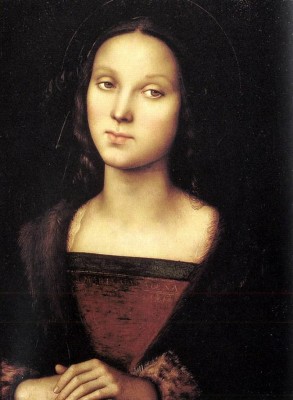It was difficult to determine who qualified as most famous from the candidates available. I looked for women who were genuinely famous (most people have heard of them). They also either obtained a high degree of political power or wielded considerable influence on their society- influential to such a degree that they were able to change perceptions and, in some cases, even shape policy. While I recognize that there are many worthy women who didn’t make my list, here is my best attempt to ascertain the top 10 most famous women throughout history.
10. Harriet Tubman
Few people could imagine that a poor black woman born into slavery could go on to become one of the best known figures of the nineteenth century, but that’s exactly what Harriet Tubman became. Born in Maryland around 1821, Tubman’s life was one of hardship and deprivation from childhood that even marriage to a free black man named John Tubman could not erase. Finally having enough of being bought and sold as property, she finally escaped her master in 1849 and fled northward with the help of the Underground Railroad, which Thomas Garrett and other white abolitionists had established. Reaching safety in Philadelphia, she went on to help other slaves—by some accounts as many as 300, including members of her own family—find sanctuary in northern states over the next eleven years. Her efforts made her a hunted woman in the south, resulting in as much as a $40,000 price being put on her head at one point. When the Civil War broke out, her work with the Underground Railroad ended but her service to the Union cause did not. During the war she served, in turn as: a nurse, a scout for the Union, and, at one time, even a Union spy. After the war, she remained a tireless advocate for civil and human rights and a figure in the woman’s suffrage movement right up to the year of her death in 1913. Widely known and well-respected while she was alive, after her death she became an American icon. She is frequently referred to as the “Moses of her people” for her tireless efforts at freeing slaves, even at great personal danger to herself, serving as an inspiration for future generations of civil right activists.
9. Mary Magdalene
Many might be surprised to find one of the more obscure figures in the Bible named to this list, but what constitutes obscurity is a subjective opinion. While Mary the Mother of Jesus is probably better known, the evidence suggests that the widow from Magdala (whom many traditionally believed to have been a prostitute—a position that has since been revised by the church) may have been a far more important figure than the traditional gospels suggest. In fact, according to some of the Gnostic Gospels (commonly referred to as the “lost books” of the Bible), she may have been a senior disciple who was instrumental in spreading the Christian doctrine during the early decades of the church. Some scholars even suggest she may have been Jesus’ wife, making her the subject of many a Dan Brown novel. Even if she was merely a follower and friend of the Rabbi from Galilee, however, her influence in the early church—and particularly within the mystical branches of it—may have been substantial, forcing many theologians to consider revising the history of Christianity to include this Mary alongside Jesus’ mother.
8. Eleanor Roosevelt
No first lady ever had more power and prestige than Eleanor Roosevelt. One of the first women elected to the Senate in 1911 and well known for her involvement with many charitable organizations prior to becoming first lady, it wasn’t until she moved into the White House in 1933 that she really got into high gear. Eleanor Roosevelt acted as the disabled president’s “eyes and ears” at a time when most political wives were delegated to the role of hostess-in-chief. She held regular press conferences, wrote a daily news column, and used her considerable influence with the President to get him to push for and pass child welfare, housing reform and equal rights laws for racial minorities and women. A type of ambassador known for her frequent travels and speeches, she continued her work after the President died in 1945 instead of quietly fading into the background like so many former first ladies. In 1946 she was named a delegate to the newly founded United Nations. In 1947 she became the first chairman of the Commission on Human Rights, during which time she helped draft the Universal Declaration of Human Rights. By the time of her death in 1962, few could argue that regardless of what they may have thought of her personally, she had forever transformed the role of first lady and set a standard that most Presidents’ wives have trouble living up to today.

Няма коментари:
Публикуване на коментар